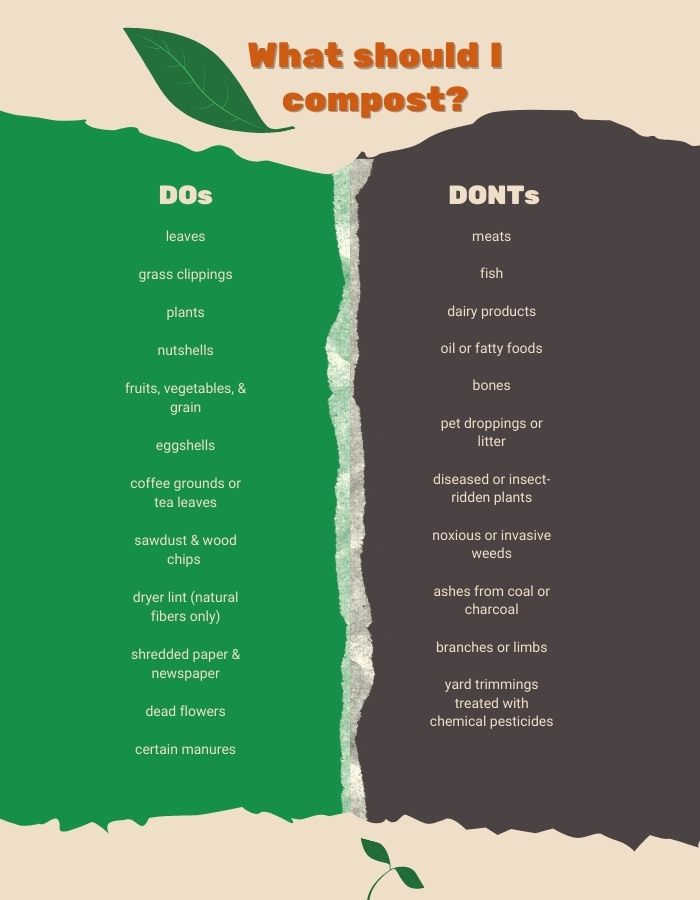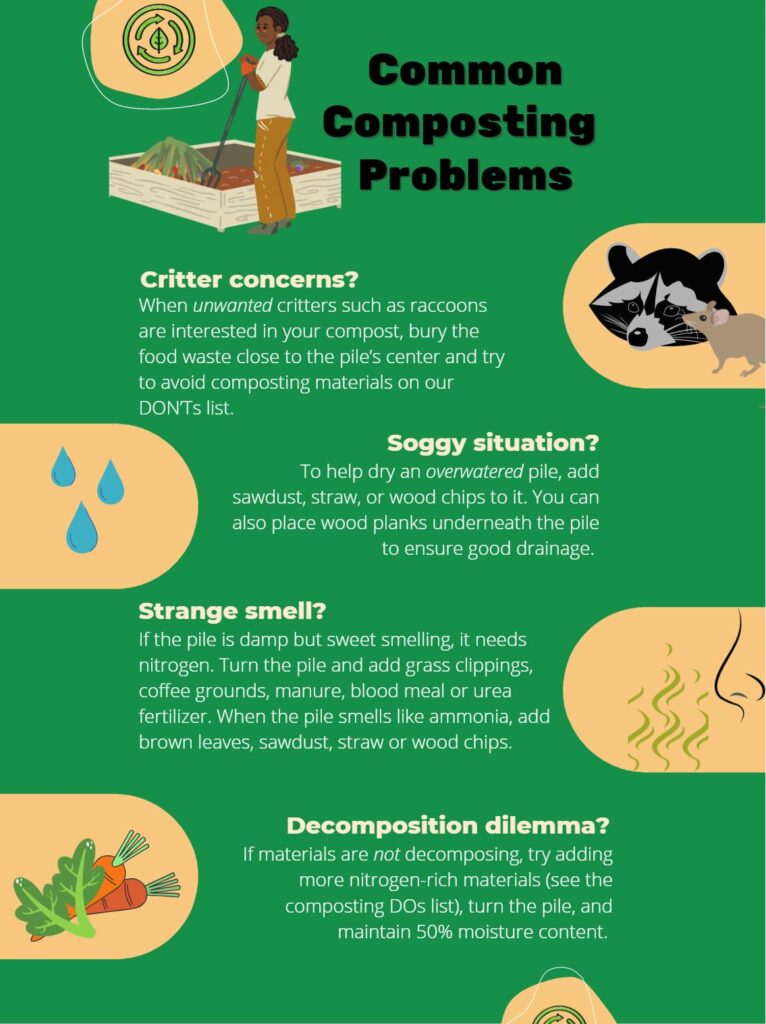By Benjamin McMillan, Owner, Rubber City Reuse
Last month, we discussed the importance of composting and gave some tips on creating an at-home compost pile, turning organic materials such as yard waste, food scraps, and shredded paper into usable, nutrient-rich fertilizer. By now, you may have some questions about how to maintain your compost pile and what to do if you notice any problems.
Maintaining Your Compost Pile

Tip 1: Understand what to compost.
One way to ensure the health of your compost is to understand which materials are beneficial for your pile. See our handy list of composting DOs and DON’Ts above.
Tip 2: Embrace composting creatures.
We’re not advising actually giving these critters a hug, but you may want to once you know that along with micro-organisms (like bacteria and fungi), insects such as centipedes, beetles, and worms help decompose the organic matter in your compost pile. Providing appropriate food and maintaining adequate water and oxygen levels will support the work of these composting creatures (see the composting DOs to learn which materials contribute to a healthy compost environment).
Tip 3: Moisturize!
Ideally, your compost should have 50% moisture content and feel damp like a wrung-out sponge. Water can be added to the compost pile by either adding green material (such as used coffee grounds and veggie scraps) or sprinkling the pile with water. Leftover non-dairy beverages can also be added to wet the pile.
Tip 4: For every pile, turn, turn, turn.
Decomposing materials in your compost pile will begin to settle and compact. This affects oxygen circulation, so aerate the pile about once a week. Turn the pile, moving the compost from outside to inside or top to bottom. You can also use an air stack or aerator tool to bring air into the center of the pile. If you’re using a compost tumbler, rotate the bin every two to three days.
Problem-Solving
Composting is like a science experiment, so it’s important to observe the pile and take note of changes. If you detect any issues, there are some easy adjustments you can make to solve them. Below, we have suggestions for handling for some of the most common composting problems!

We hope these tips help you on your composting journey! Remember, you’re making a difference by reducing landfill waste and turning would-be trash into gardening treasure.





